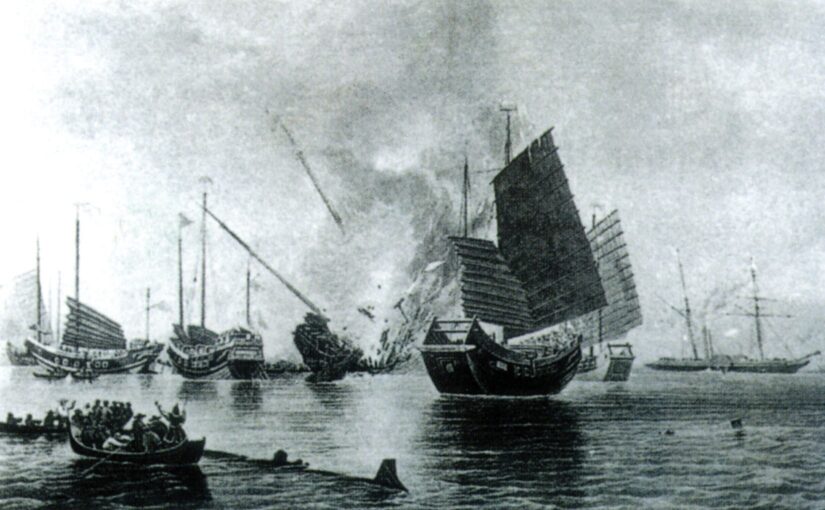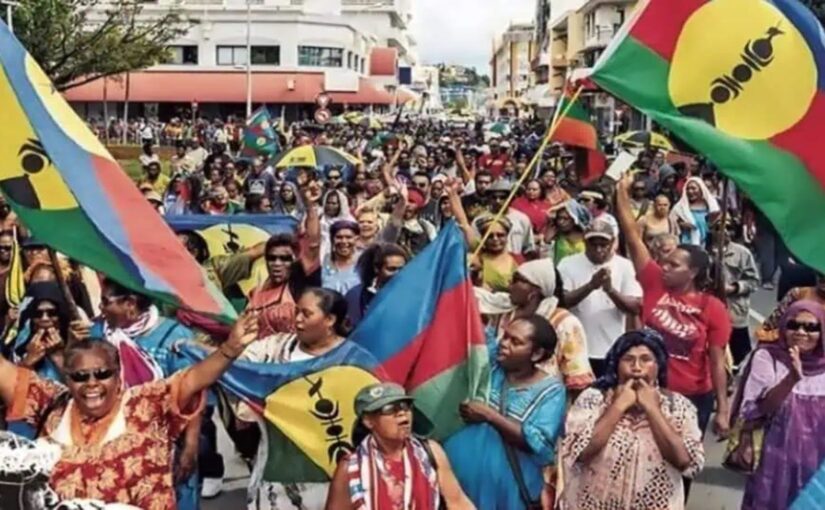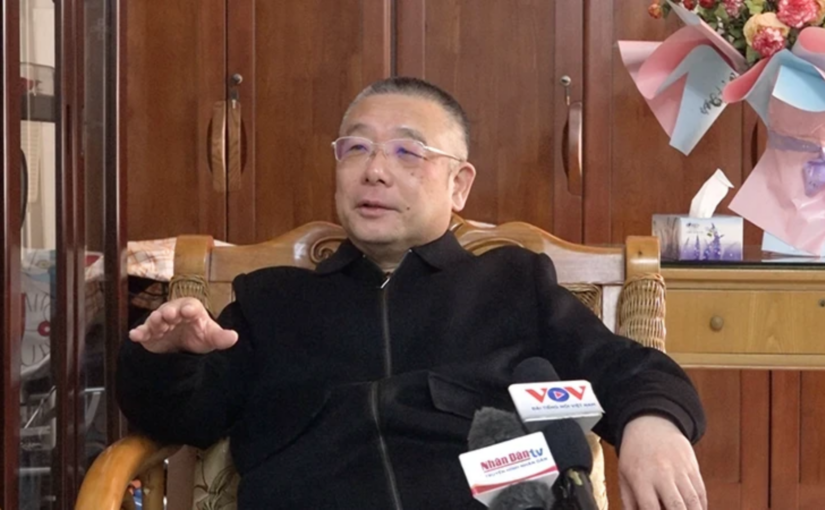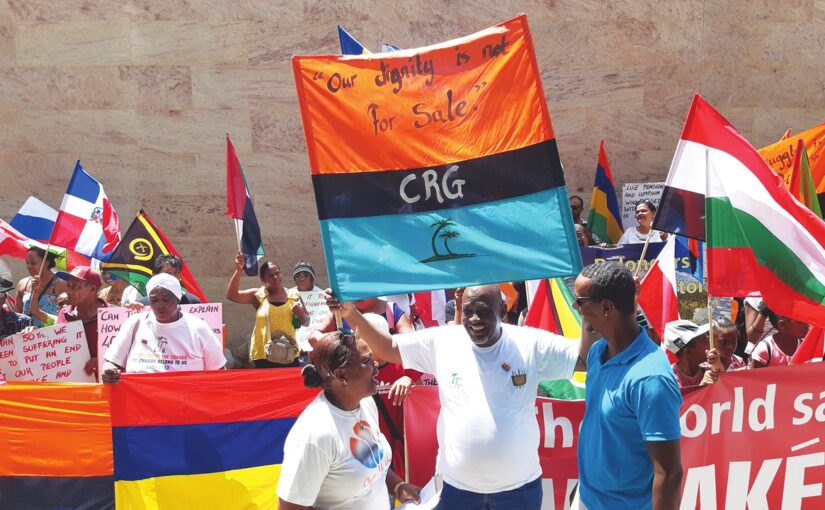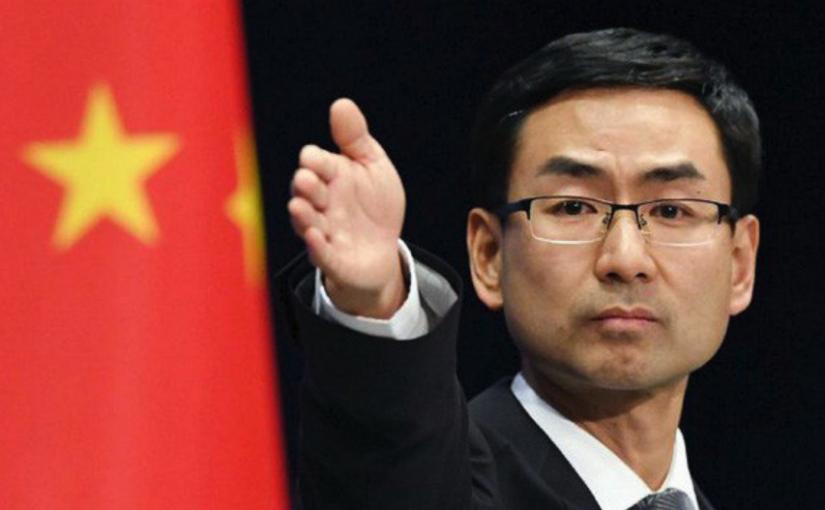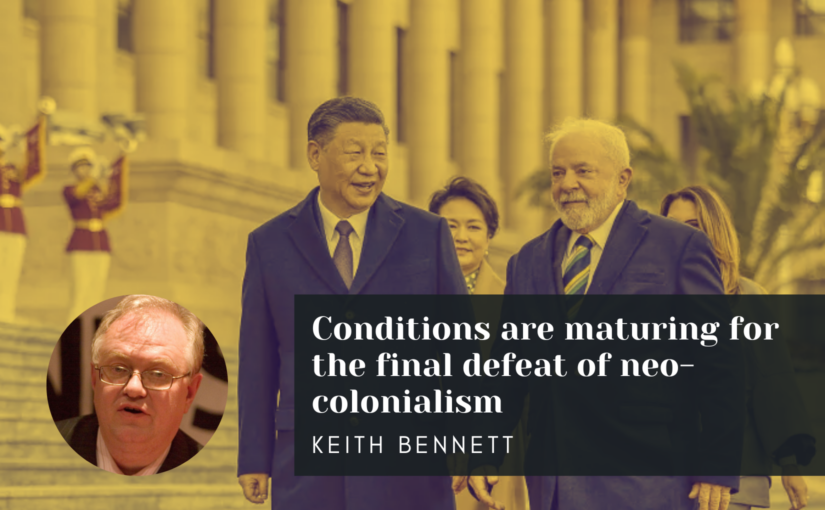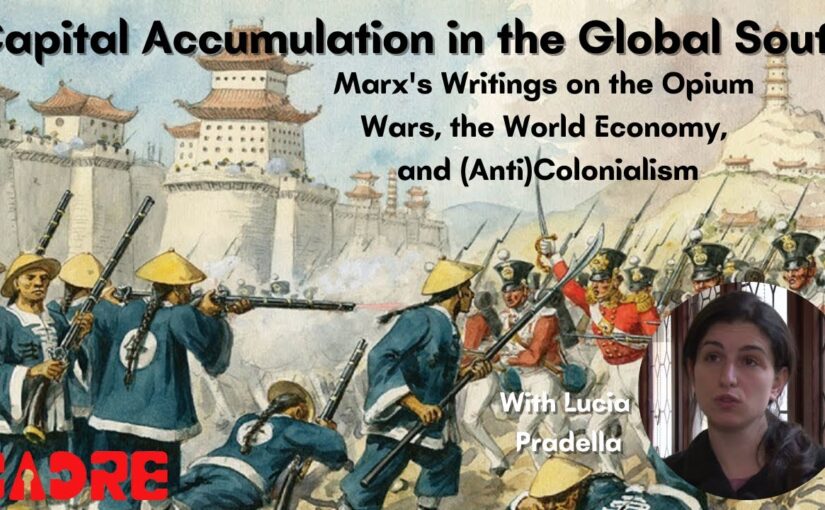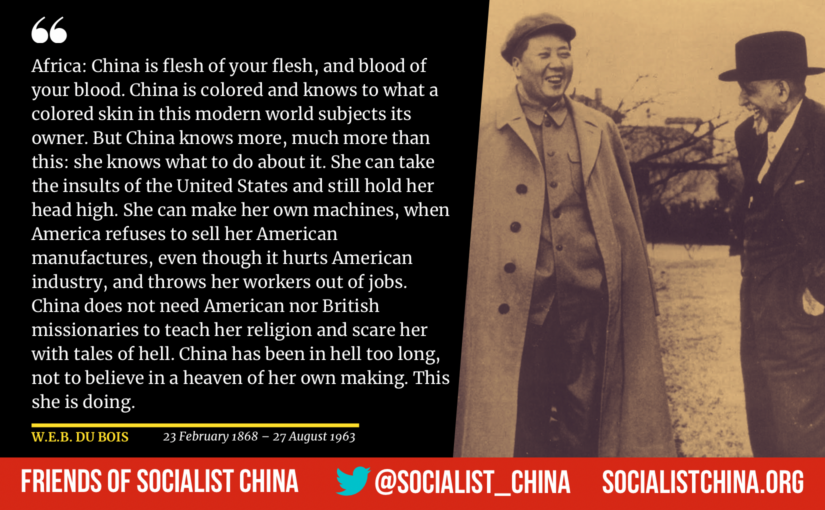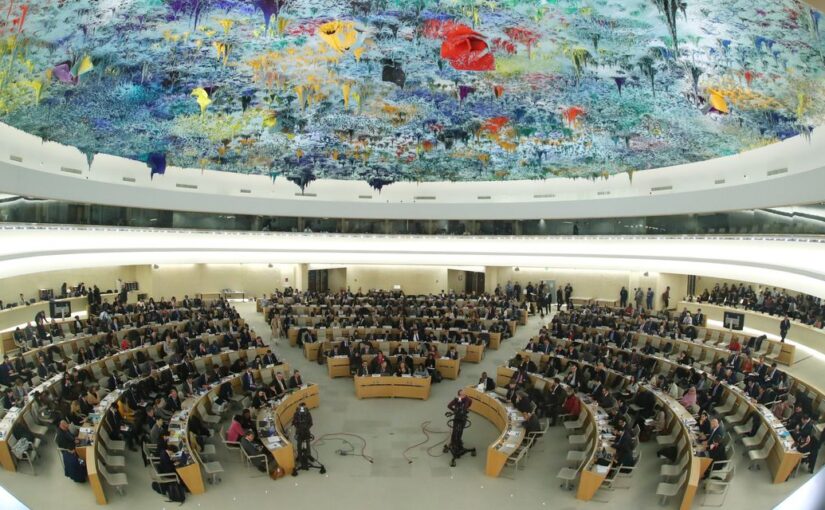This essay by Stansfield Smith, first published in MR Online, provides a detailed account of China’s Century of Humiliation, a crucial phenomenon to understand and one which continues to inform China’s anti-colonial politics. “For the Chinese, the trauma of the Century of Humiliation continues as a blunt reminder of their past defeat and neo-colonial servitude, as well as a reminder of the West’s self-righteous hypocrisy and arrogance.”
Stansfield describes how the British, later joined by other Western powers, used opium as a weapon to weaken China and reverse the flow of silver. In so doing, they caused untold suffering to the Indian as well as the Chinese people: “Britain taxed away 50% of the value of Indian peasants’ food crops to push them out of agriculture into growing Opium. This soon led to the Bengal famine of 1770, when ten million, a third of the Bengali population, starved to death. Britain took no action to aid them, as they did almost a century later with their orchestrated famine in Ireland.”
Once Britain defeated China in the First Opium War, the Treaty of Nanking gave Hong Kong to Britain as indemnity. Hong Kong “quickly became the center of Opium drug-dealing, soon providing the colony most of its revenue.” Such are the ignominious origins of British rule in Hong Kong.
China’s weakness was quickly leveraged by other Western powers, who imposed unequal treaties on China, and by the turn of the 20th century China was effectively a semi-colonial country. “The Eight-Nation Alliance (Japan, Russia, Britain, France, the United States, Germany, Italy, and Austria-Hungary) invaded again in 1900 to crush the nationalist Boxer Rebellion. An indemnity of 20,000 tons of silver was extracted, and China reduced to a neo-colony.”
Stansfield observes that “the blight of Opium on China was not resolved until the revolutionary victory in 1949.” Socialism has made China strong, and the Chinese people are determined to never again be humiliated by foreign powers. The article concludes:
The West now views China as a renewed threat, again seeking to economically disable it and chop it into pieces. However, this time, the Chinese people are much better prepared to combat imperialist designs to impose a new era of humiliation on them.
Stansfield Smith is an anti-war activist focused mostly on combating US intervention in Latin America. He is an activist with Chicago ALBA Solidarity.
For the Chinese, the trauma of the Century of Humiliation continues as a blunt reminder of their past defeat and neo-colonial servitude, as well as a reminder of the West’s self-righteous hypocrisy and arrogance.
In 1500, India and China were the world’s most advanced civilizations. Then came the Europeans. They eventually looted and wreaked havoc on both, just as they were to on the Americas and Africa. For India and China, Britain was the chief culprit, relying on state-sponsored drug-running backed by industrialized military power. The British Empire was the world’s largest producer and exporter of Opium—the main product of global trade after the gradual decline of the slave trade from Africa. Their “civilization” brought the Century of Humiliation to China, which only ended with the popular revolution led by Mao Zedong. This historic trauma and the struggle to overcome it and re-establish their country is etched in the minds of the Chinese today.
Before the British brought their “culture,” 25% of the world trade originated in India. By the time they left it was less than 1%. British India’s Opium dealing was for the large part of the 19th Century the second-most important source of revenue for colonial India. Their “Opium industry was one of the largest enterprises on the subcontinent, producing a few thousand tons of the drug every year—a similar output to Afghanistan’s notorious Opium industry [during the U.S. occupation], which supplies the global market for heroin.” Opium accounted for about 17-20% of British India revenues.
In the early 1700s, China produced 35% of the world GDP. Until 1800 half the books in the world were printed in Chinese. The country considered itself self-sufficient, not seeking any products from other countries. Foreign countries bought Chinese tea, silk, and porcelain, having to pay in gold and silver. Consequently, the balance of trade was unfavorable to the British for almost two centuries, like the situation the U.S. and Europe face with China today.
This trade slowly depleted Western reserves. Eventually, 30,865 tons of silver flowed into China, mostly from Britain. Britain turned to state sponsored drug smuggling as a solution, and by 1826 the smuggling from India had reversed the flow of silver. Thus began one of the longest and continuous international crimes of modern times, second to the African slave trade, under the supervision of the British crown.
(The just formed United States was already smuggling Opium into China by 1784. The U.S. first multi-millionaire John Jacob Astor grew rich dealing Opium to China, as did FDR’s grandfather, Warren Delano, Jr.)
The British East India Company was key to this Opium smuggling. Soon after Britain conquered Bengal in 1757, George III granted the East India Company a monopoly on producing and exporting Indian Opium. Eventually its Opium Agency employed some 2500 clerks working in 100 offices around India.
Britain taxed away 50% of the value of Indian peasants’ food crops to push them out of agriculture into growing Opium. This soon led to the Bengal famine of 1770, when ten million, a third of the Bengali population, starved to death. Britain took no action to aid them, as they did almost a century later with their orchestrated famine in Ireland. Another famine hit India in 1783, and again Britain did nothing as 11 million starved. Between 1760-1943,
As per British sources, more than 85 million Indians died in these famines which were in reality genocides done by the British Raj.
At its peak in the mid-19th century, the British state-sponsored export of Opium accounted for roughly 15% of total colonial revenue in India and 31% of India’s exports. The massive revenues from this drug money solidified India as a substantial financial base for England’s later world conquests.
Continue reading Britain’s century-long opium trafficking and China’s ‘Century of Humiliation’ (1839-1949)